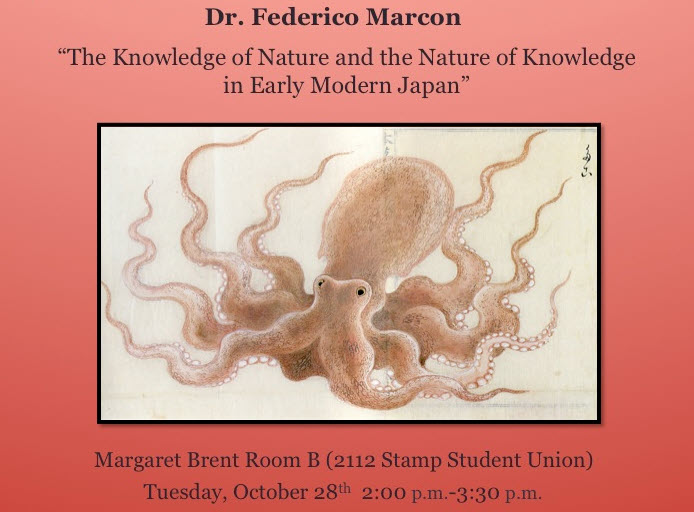Japan Speaker Series public lecture

Japan Speaker Series public lecture
School of Languages, Literatures, and Cultures | Japanese
Tuesday, October 28, 2014 2:00 pm - 3:30 pm
Adele H. Stamp Student Union,
2112
Margaret Brent Room (B)
Please join us for the Japan Speaker Series public lecture:
Dr. Federico Marcon (Princeton University)
"The Knowledge of Nature and the Nature of Knowledge in Early Modern Japan"
Between the early seventeenth and the mid-nineteenth century, a field of natural history in Japan separated itself from the discipline of medicine, produced nature knowledge that questioned the traditional religious and philosophical understandings of the world, developed into a system (called honzōgaku) that rivaled Western science in complexity, and then seemingly disappeared. Or did it? In The Knowledge of Nature and the Nature of Knowledge in Early Modern Japan, Federico Marcon recounts how Japanese scholars developed a sophisticated discipline of natural history analogous to Europe’s but created independently, without direct influence, and argues convincingly that Japanese natural history succumbed to Western science not because of suppression and substitution, as scholars traditionally have contended, but by adaptation and transformation.
Federico Marcon is assistant professor of Japanese history in the Department of History and the Department of East Asian Studies at Princeton University.
This event is sponsored by the Japanese Program of the School of Languages, Literatures and Cultures and the Center for East Asian Studies.

